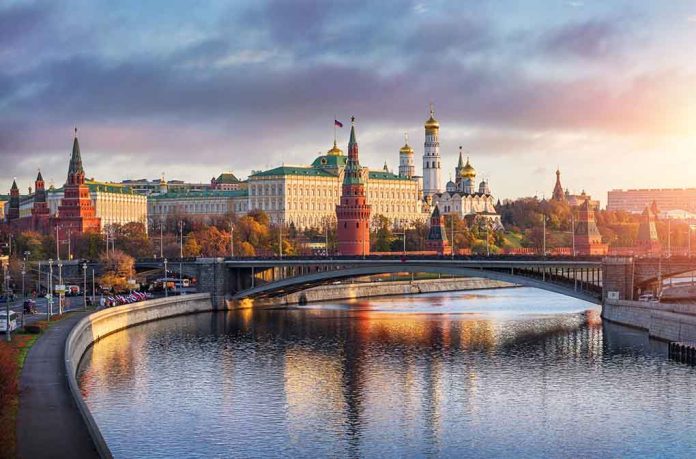
Bashar al-Assad’s asylum in Russia could alter Syria’s conflict and international ties dramatically.
At a Glance
- Bashar al-Assad has arrived in Russia.
- Assad and his family were granted asylum by Russia.
- Russian media confirms Assad’s Moscow arrival.
- The Syrian conflict’s dynamics may shift significantly.
- Opposition seizes control of Damascus.
Arrival in Russia
Bashar al-Assad, Syrian President, has officially arrived in Moscow. Assad and his family have accepted asylum offered by Russia, substantiated by claims of humanitarian necessity. Russian news sources confirmed these pivotal developments, marking a new chapter in Syria’s fraught history. While some speculate this move further cements the geopolitical ties between Russia and Syria, it raises questions about Assad’s future influence.
The decision has sparked widespread attention, potentially signaling a paradigm shift in the Syrian conflict. Russian state media reported Assad’s presence in Moscow, adding weight to the unfolding narrative. The implications of his relocation could affect Syria’s internal power dynamics.
Ousted Syrian President Bashar al-Assad has fled to Moscow and has been granted asylum, Russian state media says https://t.co/caHy58dfTU
— CNN (@CNN) December 8, 2024
Assad’s Departure from Syria
Russian authorities confirmed that Assad stepped down and left Syria, a significant development that might change regional dynamics. Syrian opposition fighters have declared that Assad’s long tenure has ended, with reports indicating they have seized Damascus. These events signify a turning point, with longstanding governance structures collapsing under opposition pressure.
“President Assad of Syria has arrived in Moscow. Russia has granted them (him and his family) asylum on humanitarian grounds.”
Reports indicate that the Russian Foreign Ministry announced Assad’s exit from Syria amidst the upheaval. Observers watch closely to understand the long-term ramifications for Syria’s political environment and the broader Middle East.
Syrian President Bashar al-Assad and his family are in Moscow under asylum, Russian news agencies say https://t.co/DBRqGB1aYa
— USA TODAY (@USATODAY) December 8, 2024
Strategic Global Implications
Bashar al-Assad’s asylum arrangement with Russia not only affects Syrian domestic politics but also has implications for international relations. Analysts predict significant shifts in regional alliances and power balances. Russia’s influence in the Middle East is likely to deepen, changing how global powers engage with the region, especially concerning diplomatic and humanitarian efforts.
BREAKING/SYRIA: Former Syrian President Bashar al-Assad is in #Moscow #Russia where he has been offered political asylum after resigning his post and fleeing #Syria by jet as rebel fighters took control of the capital, #Damascus.
— newsbell (@newsbell) December 8, 2024
Consequently, the situation demands attention from global leaders who may need to reassess their strategies regarding both Syria and Russia. As developments unfold, the asylum’s broader impact on global foreign policy and regional stability will become clearer, reshaping Syria’s role on the international stage.
Sources
2. Syria’s Assad is in Moscow after deal on military bases: Russian state media














